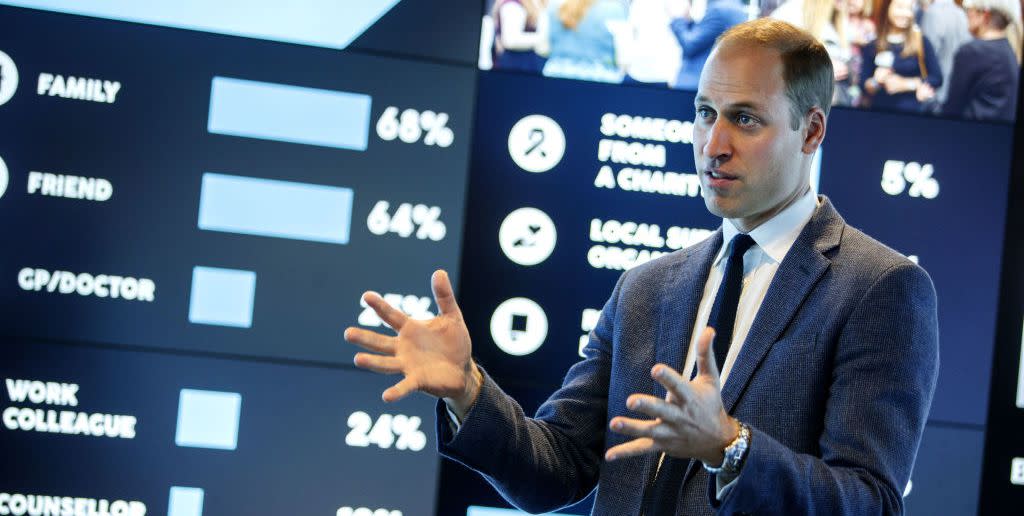Prince William Has an Interesting Theory About Why the British Have Trouble Expressing Emotion

Prince William took to the stage at the World Economic Forum in Davos this Wednesday, joining an impressive line-up of mental health advocates from around the globe. He used the opportunity to discuss his, Kate Middleton, and Prince Harry's Heads Together initiative-a program that fights to erase the stigma around mental health issues.
William explained that Heads Together was a natural outgrowth of the "The work I’d been doing, the charities have to do with addiction homelessness, veterans' welfare, young disadvantaged people," he said. "And the work my brother and my wife was doing as well. We all sat down after quite a few years of doing this, and we started to realize that there was this elephant in the room that had never been grappled with, and it crossed between all the different sectors and organizations that we were working with. And mental health was the thing."
As for why it had never been grappled with, Prince William placed the blame squarely on British people's reticence to discuss their feelings-which, according to him, is the product of history. Read the future king's theory below.
We’re very embarrassed about revealing our emotions. And I take it back as far as the war. And I think, you know, the wartime was very, very difficult for everybody. And people were dealing with their own ways, and losing so many loved ones, and dealing with such horrendous circumstances that no matter how much you could talk, you were never gonna fix the issue. It was so destructive and devastating that I think a whole generation just decided that this was the best way of dealing with it. They then, completely by accident, passed that on to the next generation. You know, we all learn from our parents. We all learn from how they deal with things. So a whole generation inherited that this was the way you deal with problems. You don’t talk about them. And I think now, there’s a generation here that are finally realizing that this is not normal, we should talk about it, we should get over it... This is a generational issue and we’ve got to start tackling it now so that our children and our grandchildren don’t have to go through this sort of process, and they can be more open about it.
('You Might Also Like',)

